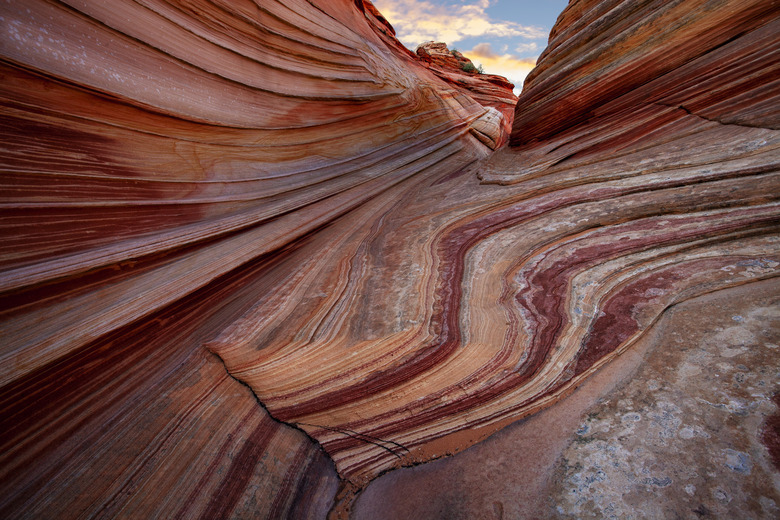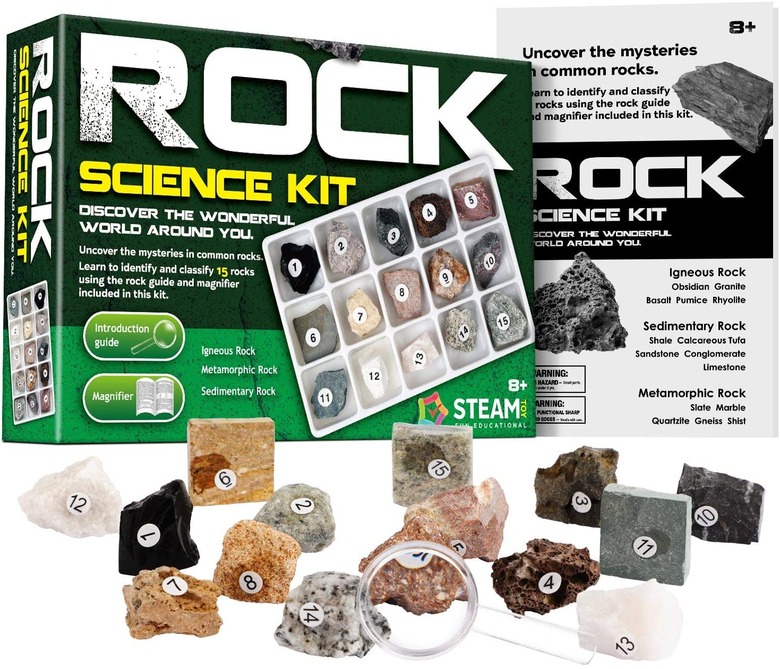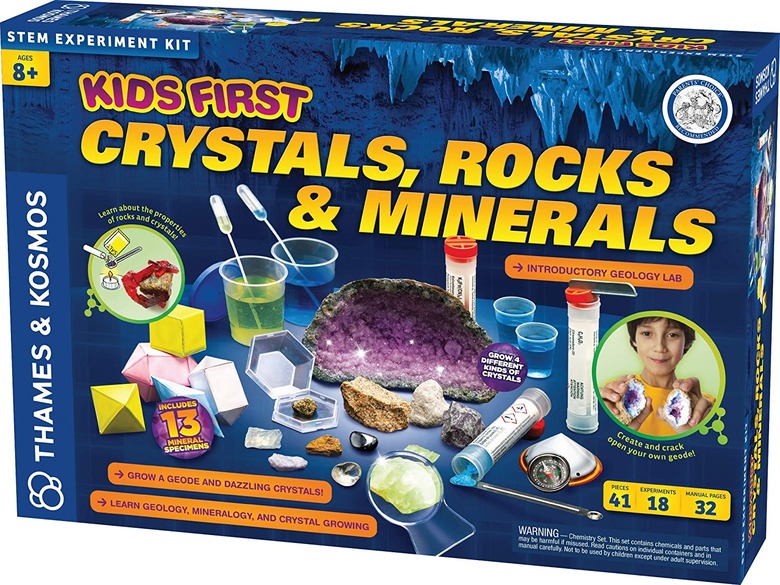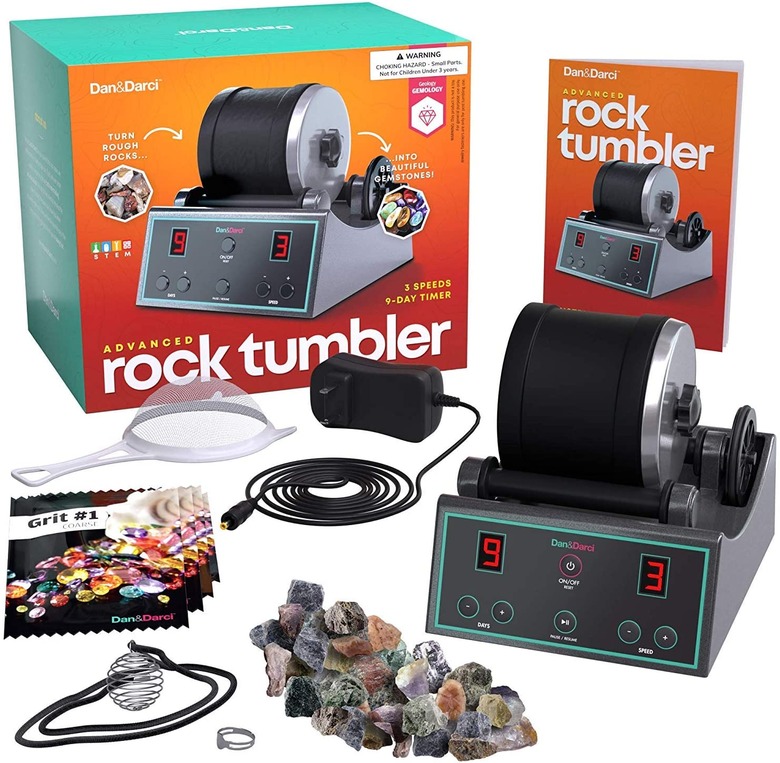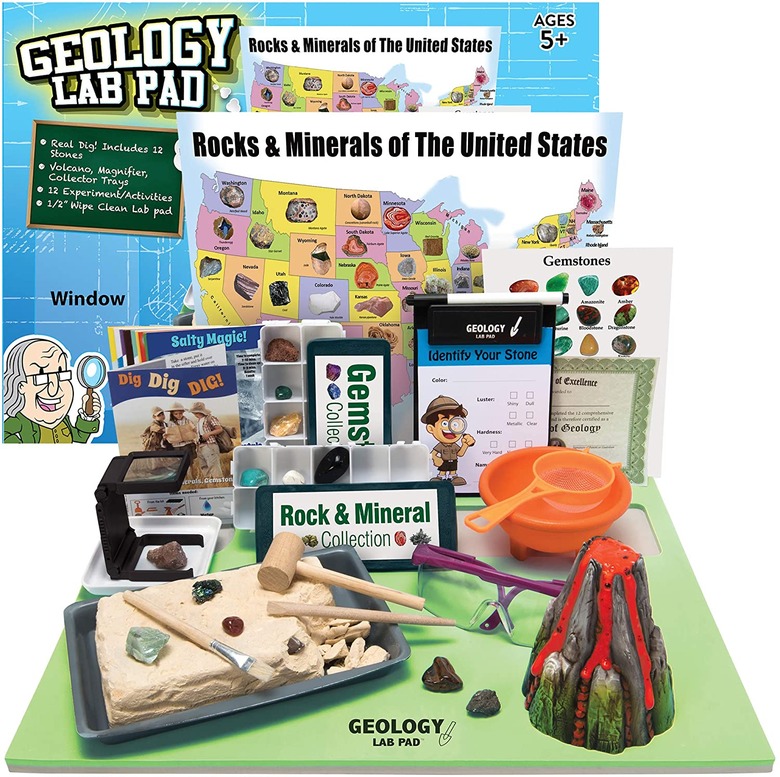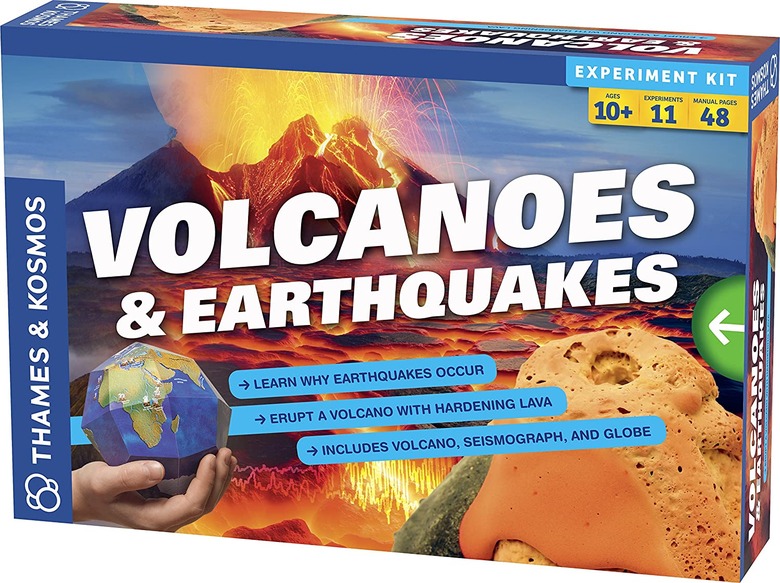Everything You Need To Know About Geology (The Study Of Rocks)
We may receive a commission on purchases made from links.
Sciencing may earn compensation through affiliate links in this article.
If you loved playing with rocks as a kid (or you've got a stellar rock collection right now) we've got good news. That rock fascination? It's a legit science career.
And, in science terms, it's called geology.
Geology is the study of the earth. In particular, geology studies the solid structure of our planet, the layers of rock, minerals and other materials, and how they interact with each other. Geology is also combines science with the study of the history of the earth, since geologist study the formation, structure and changes to our planet that have occurred over time.
Becoming a geologist means going to university or college (and maybe even grad school), but you can start learning about this awesome field right now. Read on to learn more about what geology is, what geologists do, and the science kits you need to start learning geology today.
What Do Geologists Do?
What Do Geologists Do?
Ask a non-scientist about geology and you'll probably hear that it's "something to do with rocks." And that's true! Geologists look at the different rocks, minerals and other materials that make up the earth's solid outer layer, called the crust. They also look at the other substances found buried in the earth's crust, like oil and natural gas. And they study major geological events, like volcanic eruptions, earthquakes and floods.
**Why is that important?**
Well, geology shapes how we live. Think about earthquake-prone regions, like California. Some geologists help us understand which areas are most prone to earthquakes, so we can build buildings strong enough with withstand them. They can also ID areas that are likely to flood, so we can plan in advance to avoid excess flooding – and deal with it when it happens.
And that's just one type of career you could pursue in geology. You could also work in paleontology, studying fossils (like the awesome dinosaur fossils you might have seen at museums). You could be an oceanographer, learning about the geology at the bottom of the ocean floor. You could become a paleobiologist, learning about how the earth looked millions of years ago. And, you could even become a climatologist, and help uncover how our planet will change in the future.
How to Start Learning About Geology
How to Start Learning About Geology
No matter what kind of geology you're interested in, you'll need to go to college or university. Lots of schools have an undergraduate geology and earth science program that'll prepare you for some careers. And top geologists also go to grad school, where you'll get to do your own geological research, conduct your own experiments and publish the results (in other words, become a legit scientist).
But that's all in the future, and you don't need higher education to start learning more about our planet. Learn more about geology today with these awesome science kits.
Stone Collection Science Geology Kit
Stone Collection Science Geology Kit
Sure, geology's more than just the study of rocks – but this kit is a great way to start learning about the minerals that make up our planet. This science kit has 15 samples of different types of rocks, ranging from igneous rocks (the type of rock created when lava or magma cools down) to sedimentary rocks (created when layers of sand and dirt compact under pressure to form rock). It also contains examples of metamorphic rocks, which are formed when preexisting rocks are changed after exposure to heat, pressure, or exposure to other minerals.
**Available at Amazon:** US&ref=as_li_ss_tl'>Rock, Gem & Mineral Collection Kit
Crystals, Rocks and Minerals Introductory Geology Lab
Crystals, Rocks and Minerals Introductory Geology Lab
This science kit contains different types of rocks, too – but you'll also get everything you need to conduct introductory geology science experiments. You'll get a mini magnifying class to look at your mineral samples up close, plus patterns to make different types of "crystals" out of paper. Finally, you'll be able to make your own geode: a formation that looks like a "rock" on the outside but has crystal formations inside. Geodes make great decorations, too, so you can keep your finished experiment in your room for decoration, or bring it into class for show and tell.
**Available at Amazon:** US&ref=as_li_ss_tl'>Thames & Kosmos Kids First Crystals, Rocks & Minerals Science Experiment Kit
Professional Rock Tumbler Kit
Professional Rock Tumbler Kit
If you're into geology, chances are you've got a growing rock collection. Why not get this rock tumbler science kit to get a different look at the rocks around you? Rock tumblers use a mixture of sand and water to wear down the jagged edges of rocks, leaving you with a smooth, shiny, and sometimes even sparkly surface that you can't usually see in unpolished rock. This kit comes with everything you need to get started, including the tumbler, the grit and a number of minerals to polish. But you don't need to stop there – try polishing pebbles from your backyard and neighborhood, too.
**Available at Amazon:** US&ref=as_li_ss_tl'>Advanced Professional Rock Tumbler Kit
Rocks & Minerals of the United States Kit
Rocks & Minerals of the United States Kit
As one of the largest countries in the world, the United States has a varied geology, depending where you are in the country. So the rocks you see in New York, for instance, look different than some of the ones you'd stumble across in southern Florida. This science kit takes you on a geological survey around the country, with charts and graphics to see how rocks look all over the U.S. It also comes with a DIY geological dig, so you can excavate 12 different stones from a geological "survey."
**Available at Amazon:** US&ref=as_li_ss_tl'>Ben Franklin Toys Geology Lab Pad Science Kit
Volcanoes and Earthquakes Science Kit
Volcanoes and Earthquakes Science Kit
A big part of geology is looking at how the earth changes over time. And, sometimes, those changes are sudden, like earthquakes and volcanic eruptions. And if you're into learning more about the "disaster" side of geology, this kit is a must-have. You'll be able to create your own volcanic eruption, complete with lava that hardens as it cools (which is how igneous rock is created IRL). The kit also contains a seismograph, a machine used to detect and predict earthquakes, and learn all about how earthquakes occur. It's everything you need to explain what's really happening the next time you and your friends watch an earthquake movie.
**Available at Amazon:** US&ref=as_li_ss_tl'>Thames & Kosmos Volcanoes and Earthquakes Science Kit
Cite This Article
MLA
Tremblay, Sylvie. "Everything You Need To Know About Geology (The Study Of Rocks)" sciencing.com, https://www.sciencing.com/what-is-geology-13764454/. 19 May 2021.
APA
Tremblay, Sylvie. (2021, May 19). Everything You Need To Know About Geology (The Study Of Rocks). sciencing.com. Retrieved from https://www.sciencing.com/what-is-geology-13764454/
Chicago
Tremblay, Sylvie. Everything You Need To Know About Geology (The Study Of Rocks) last modified August 30, 2022. https://www.sciencing.com/what-is-geology-13764454/
